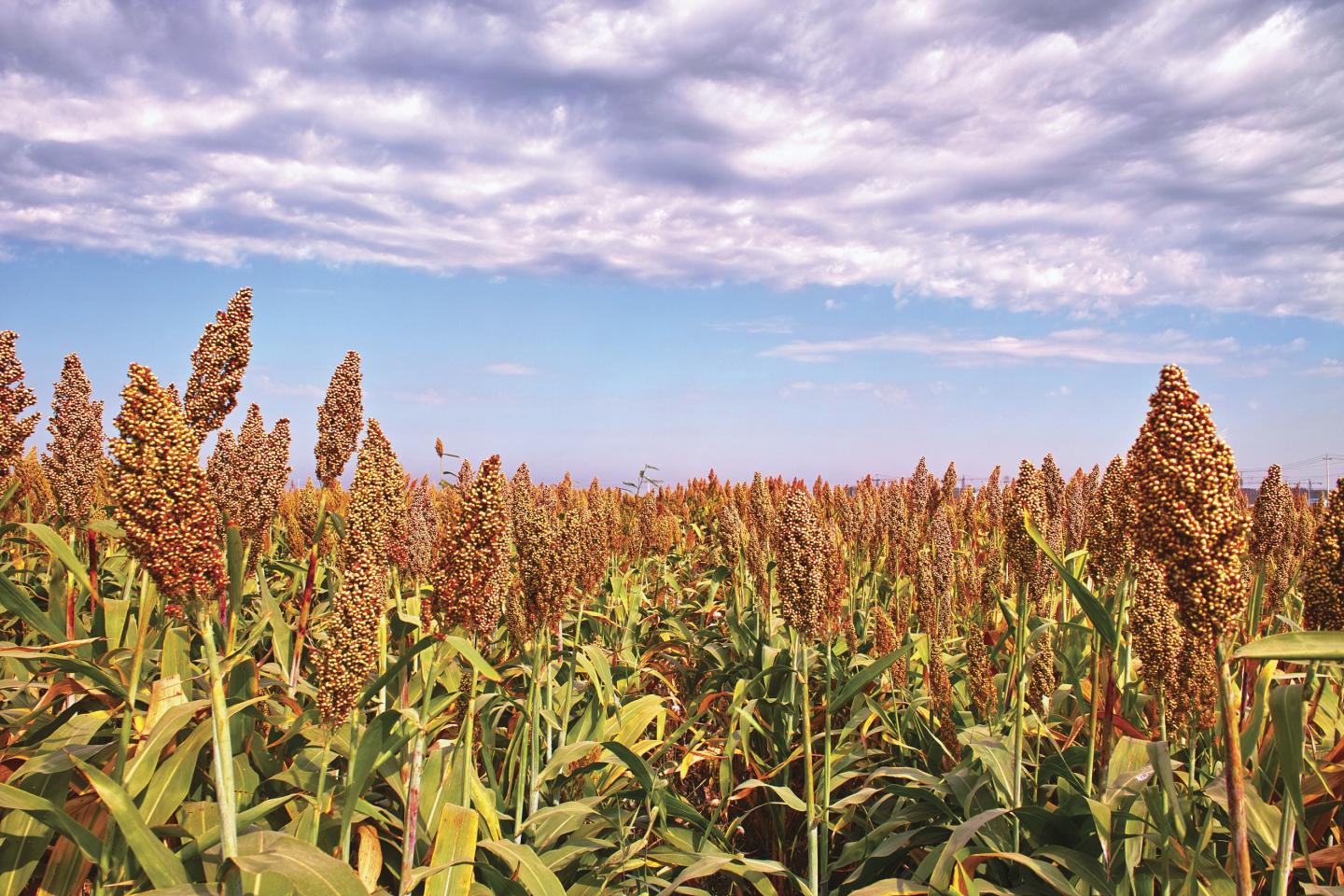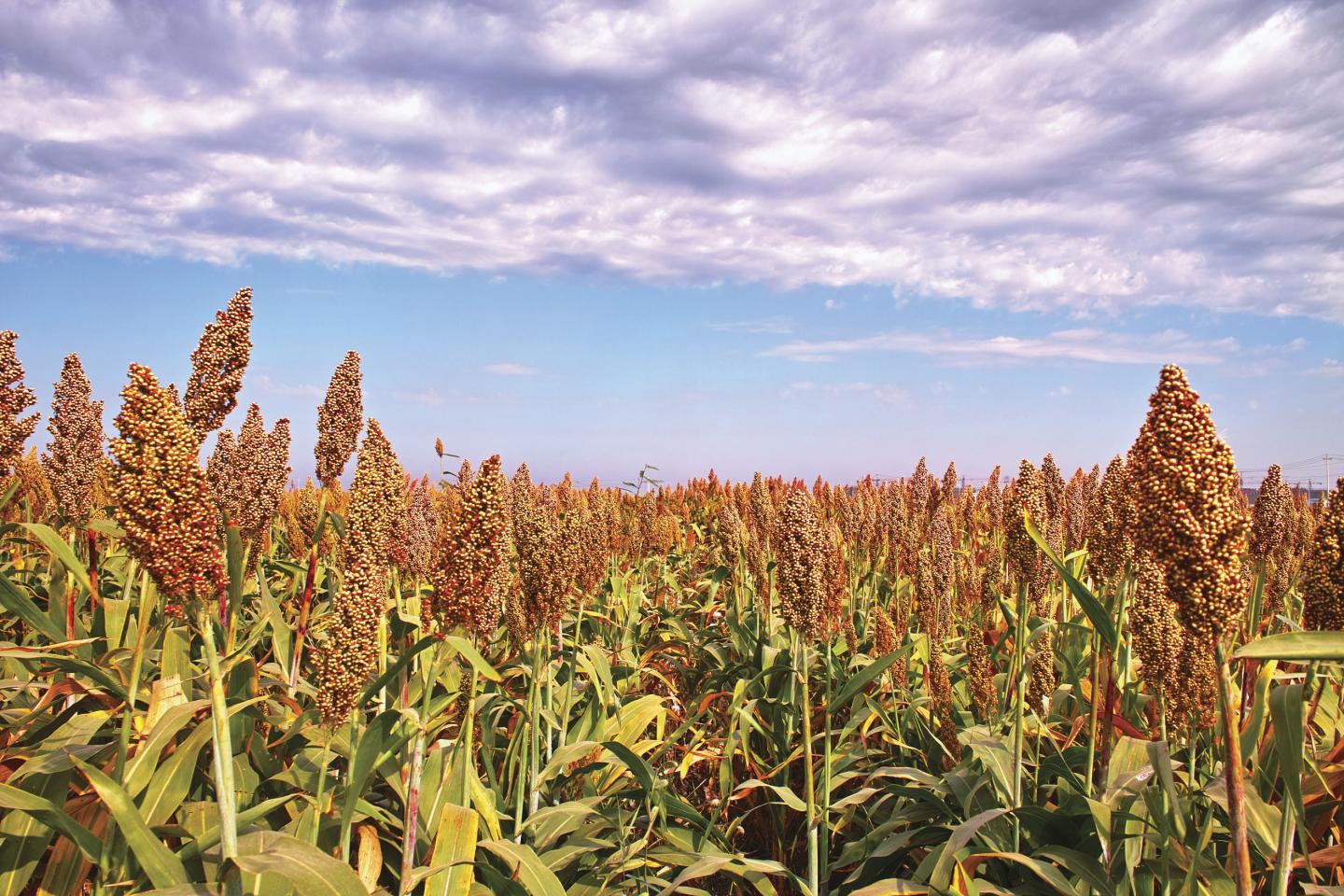
Credit: NA
ST. LOUIS, MO, Oct. 2, 2017 – The Donald Danforth Plant Science Center, one of the world's largest independent plant science institutes, today announced a 5-year $16 million grant from the U.S. Department of Energy (DOE). Building on earlier research using the model grass, green foxtail (Setaria viridis), this project will identify new genes and pathways that contribute to photosynthesis and enhanced water use efficiency. The team will then deploy these genes using tools of the emerging field of synthetic biology to accelerate development of elite energy sorghum varieties for production under marginal environments.
"Understanding the network of genes involved in photosynthesis and drought tolerance will provide targets for plant breeders and genetic engineers to re-design sorghum specifically as a high value bioenergy feedstock to be grown on marginal soils and thus not compete with food crops," said lead principal investigator, Thomas Brutnell, Ph.D., director of the Enterprise Rent-A-Car Institute for Renewable Fuels at the Danforth Center.
This project aims to deliver stress-tolerant sorghum lines, addressing DOE's mission in the generation of renewable energy resources. The development of a low input, environmentally safe and highly productive sorghum germplasm will help establish a lignocellulosic energy economy that can provide jobs to rural communities, ensure energy security and benefit the environment.
The project's strength lies within the multi-disciplinary team's expertise ranging from plant physiology, genetics, molecular biology, informatics, computational biology and genetic engineering from scientists at Washington State University, Carnegie Institution for Science, University of Rhode Island, University of Illinois, University of Minnesota and the United States Department of Agriculture.
"Sorghum is an attractive bioenergy feedstock supported by well-developed breeding and seed industry," said co-principal investigator on the grant, Todd Mockler, Ph.D., Geraldine and Robert Virgil Distinguished Investigator at the Danforth Center. "This project will leverage recent investments by DOE to further accelerate sorghum feedstock enhancements, develop new gene editing and transformation technologies and conduct a whole genome association study to identify genes to improve sorghum productivity."
Sorghum is a member of the grass family and is grown worldwide. Sorghum is very resilient to drought and heat stress. Natural genetic diversity in sorghum makes it a promising system for identifying stress-resistance mechanisms in grasses that may have been lost during the domestication of related cereal crops. It is among the most efficient crops in conversion of solar energy and use of water, making it an ideal crop to target for improvement.
###
About The Donald Danforth Plant Science Center
Founded in 1998, the Donald Danforth Plant Science Center is a not-for-profit research institute with a mission to improve the human condition through plant science. Research, education and outreach aim to have impact at the nexus of food security and the environment, and position the St. Louis region as a world center for plant science. The Center's work is funded through competitive grants from many sources, including the National Institutes of Health, U.S. Department of Energy, National Science Foundation, and the Bill & Melinda Gates Foundation. Follow us on Twitter at @DanforthCenter.
Media Contact
Melanie Bernds
[email protected]
314-587-1647
Original Source
https://www.danforthcenter.org/news-media/news-releases





